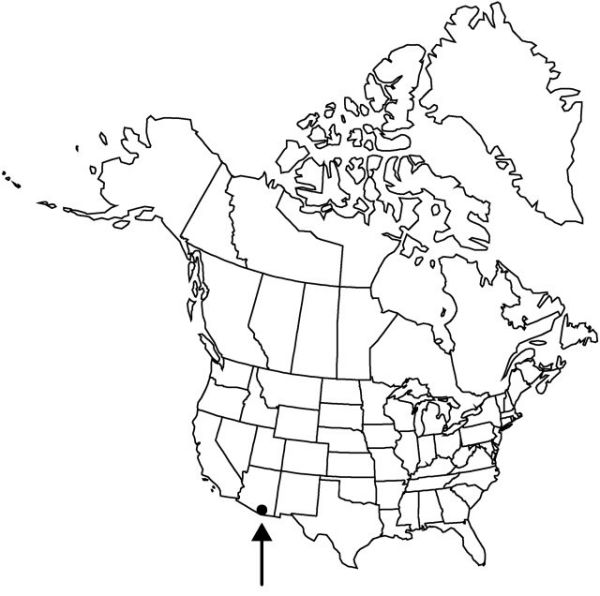Agave parviflora subsp. parviflora
Plants acaulescent, freely suckering; rosettes solitary or cespitose, 1–1.5 × 1.5–2 dm. Leaves ascending to erect, 6–10 × 0.8–1 cm; blade dark green with white bud-prints on both surfaces, oblong-linear, firm, adaxially plane toward apex, abaxially convex toward base; margins straight, denticulate near base, filiferous, fibers white, tightly curled; apex abruptly acuminate, spine brown to grayish white, subulate, 0.5–0.8 cm. Scape 1–1.8 m. Inflorescences spicate, laxly flowered on distal 1/2; bracts caducous, narrowly triangular, 1–3 cm; peduncle shorter than 2 mm. Flowers 2–4 per cluster, strongly recurved, 1.4–1.7 cm; perianth cream to pale yellow, tube urceolate, 5–7 × 4.5–5.5 mm, limb lobes erect to incurved, subequal, 2–3.5 mm; stamens slightly exserted; filaments inserted 1 mm above base of perianth tube, erect, cream, 0.9–1.4 cm; anthers yellow, 5–8 mm; ovary 0.6–0.9 cm, neck slightly constricted, 2 mm. Capsules sessile to short-pedicellate, globose, 0.6–1 cm, apex short-beaked. Seeds 2.5–3 mm. 2n = 60.
Phenology: Flowering late spring–late summer.
Habitat: Open rocky slopes, mostly in desert grasslands and oak woodlands
Elevation: 900–1500 m
Distribution

Ariz., nw Mexico.
Discussion
Selected References
None.